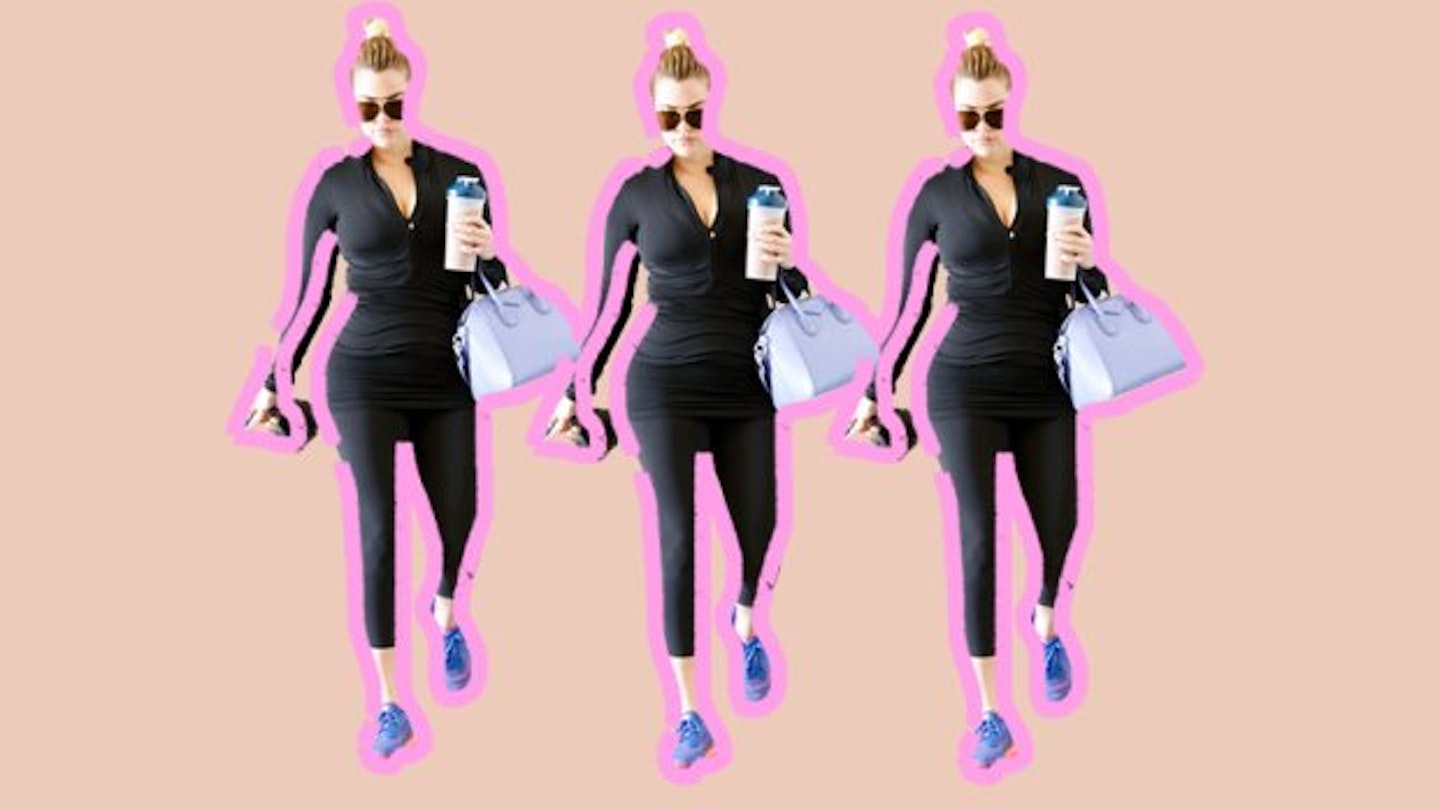Protein World (yes, they of Beach Body Ready gate) have signed Khloe Kardashian as their new brand ambassador to ‘empower’ young women. My formerly favourite Kardashian is taking part in a six-month long campaign about what is essentially a weight loss challenge.
As if that wasn’t enough, the brand has decided to jump on the femvertising band wagon and use what was once a political movement (feminism) to sell women a weight loss protein powder that they definitely do not need.
The co-opting and corrupting of feminism by advertisers is nothing new. Indeed, it goes a long way back. How empowered does your razor make you feel? Does the smooth feel of your bald legs make you feel like your most feminist self? What about your antiperspirant? I don’t know about you but my shampoo is pretty empowering and I never feel more feminist than when I’m washing my hair…because I’m worth it.
The use of ‘empowerment’ and Khloe Kardashian by Protein World isn’t shocking, it’s predictable. It’s also proof that words which were once vital and potent have not only lost their meaning, but become something different altogether. Feminism, made trendy by the Spice Girls, Instagram and Emma Watson, has been sold off. Capitalism owns it now, it gets packaged up by executives in glass walled board rooms and sold back to us in the form of stuff we don’t need or want via our insecurities. Who benefits? Corporations, not consumers. Khloe Kardashian is the winner here, having millions of dollars in the bank is very empowering, I'm sure.
Protein World describe the campaign as being aimed at women who want to ‘feel more confident and comfortable in [their] own skin, lose baby weight, or just show [their] ex what he’s missing.’ Advertising industry trade publication Campaign Live reportsthat the brand’s chief executive Arjun Seth has said: ‘with this campaign we’re celebrating empowered young people who want to be their best selves, by looking good and feeling great.’
Empowerment, if we’re going to get all etymologic about this, means giving someone the authority or power to do something. It is, politically speaking, the process of someone becoming stronger and more confident, particularly in their own life and when it comes to claiming their rights. Technically, I suppose, losing weight can be empowering but when the work of feminism isn’t even half done, it does feel like there are more pressing empowerment issues. The gender pay gap, for instance? The fact that women around the world still don’t have equal rights to their men, perhaps? Abortion rights, or lack thereof, maybe?
Empowerment used to mean something, the word has now been bled dry. You might argue this is also true for feminism, as a word and concept. The Internet helped feminism to go viral but it also enabled the rise of myriad feminisms and diluted the movement. It’s about individuals now and not communities, it’s embodied by words not actions.
In 2006, the year I went to university journalist Susan Faludi wrote a new prologue for her 1991 book about the state of feminism, Backlash.
'In the years since feminism's revival in the early 1970s' she wrote, 'women have sped across so much ground that we can scarcely recognise the lives our grandmothers and grandmothers lived...Yet as women near the finish line, we are distracted.' She noted that women had ‘stopped to gather glittery trinkets from an apparent admirer’, the admirer was ‘the marketplace’ and ‘the trinkets’ were what she described as ‘the bounty of a commercial culture’ which was using ‘the language of liberation as a new and powerful tool of subjugation’ in order to sell women products on a seemingly ‘feminist’ basis when, in fact, the profits would not empower women but, instead, bolster the wealth of those who already held all the cards.
Today, Beyoncé performs on stage with the word ‘feminism’ writ large in lights behind her, you can buy ‘feminist’ clothes and ‘empowering’ foods but are we any closer to achieving equality for women around the world? No, the World Economic Forum reckons it could take 170 years to close the gender pay gapand in 2016, ten years after Faludi’s new prologue Donald Trump was elected as President of the United States and now there are legitimate question marks over the future of women’s rights, specifically their reproductive rights, in America.
Can you really sell empowerment? Can you buy it? Perhaps Khloe Kardashian really does think Protein World’s whey protein shakes are ‘empowering’, I’ve never tried one so I can’t comment. If doing something makes you feel like you’re taking control of your own story, then that is empowering. However, using the term ‘empowerment’ to sell what is effectively a weight loss supplement, designed to reinforce the age-old idea that women are happier when they are shrinking themselves because that will result in them being more attractive isn’t liberating. In fact, I would argue that it’s the opposite: limiting.
Like this? You might also be interested in:
How Sisters Uncut Are Changing The Way Politics Is Done** **
The Forgotten Story Of The Women Behind The British Black Panthers
Taylor Swift's Feminism Makes People Care Less About Women's Issues
Follow Vicky Spratt @Victoria_Spratt
This article originally appeared on The Debrief.
